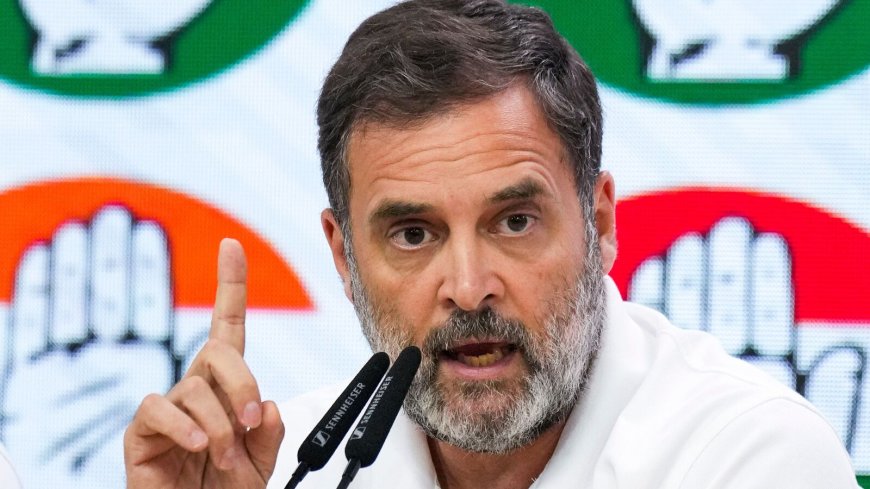‘Bachpana’ or ‘saaf dil ke neta’? BJP, Congress ally react to Rahul Gandhi's ‘what happened in 80s was wrong’ remark
Congress leader Rahul Gandhi said recently he was “more than happy” to take responsibility for everything wrong the Congress did in its history.

‘Bachpana’ or ‘Saaf Dil Ke Neta’? Reactions to Rahul Gandhi's 80s Remarks
In the political arena, words matter, and Rahul Gandhi’s recent remarks regarding the events of the 1980s have sparked significant reactions from key political players, including allies from the BJP and Congress. Gandhi stated that “what happened in the 80s was wrong,” a statement that has ignited a flurry of discussions and debates across party lines. News by dharmyuddh.com
The Context Behind Rahul Gandhi’s Statement
Rahul Gandhi’s comment is rooted in the historical incidents of the 1980s in India, which include various socio-political upheavals. The Congress leader's contention aimed to highlight accountability and promote introspection among political leaders and their parties. His statement, however, opens a window to broader discussions surrounding the responsibility of political leaders for past actions and their implications on contemporary politics.
BJP's Response: Criticism from Rivals
Following Rahul Gandhi's remarks, leaders from the Bharatiya Janata Party (BJP) characterized his statements as “bachpana” (childishness), suggesting that Gandhi's comments lack maturity and fail to acknowledge the complexities involved in historical events. BJP spokespersons emphasized that such assertions cultivate divisiveness instead of unity, urging for a nuanced understanding of the past rather than simplistic blame games. They argue that true leadership requires a recognition of sacrifices made by various leaders, including those which are often sidelined in historical narratives.
Congress's Defense and Support
On the other side, Congress members have rallied in support of Rahul Gandhi, asserting that his comments reflect a commitment to transparency and democratic values. They argue that acknowledging past mistakes is crucial for forging a path toward a more inclusive future. Supporters emphasize that by admitting missteps, politicians can foster better dialogue and prevent the repetition of historical injustices. Congress leaders encourage more discussions on the implications of actions taken by leaders in the past and their effects on future governance.
The Public’s Voice: Divided Opinion
The public opinion on this matter remains divided. Some segments resonate with Rahul Gandhi's intention, seeing it as a call for genuine accountability from leaders. Others align with the BJP stance, interpreting Gandhi’s remarks as politically motivated tactics rather than a sincere reflection on the past. In an era of polarization, such discussions highlight the challenges faced by political parties in navigating their historical narratives while appealing to a diverse electorate.
Concluding Thoughts
This discourse around Rahul Gandhi's remarks about the events of the 1980s underscores the tension between accountability and political narratives. As we continue to observe these developments, it becomes evident that the interpretations of history will play a crucial role in shaping future political landscapes. For more updates, visit dharmyuddh.com







